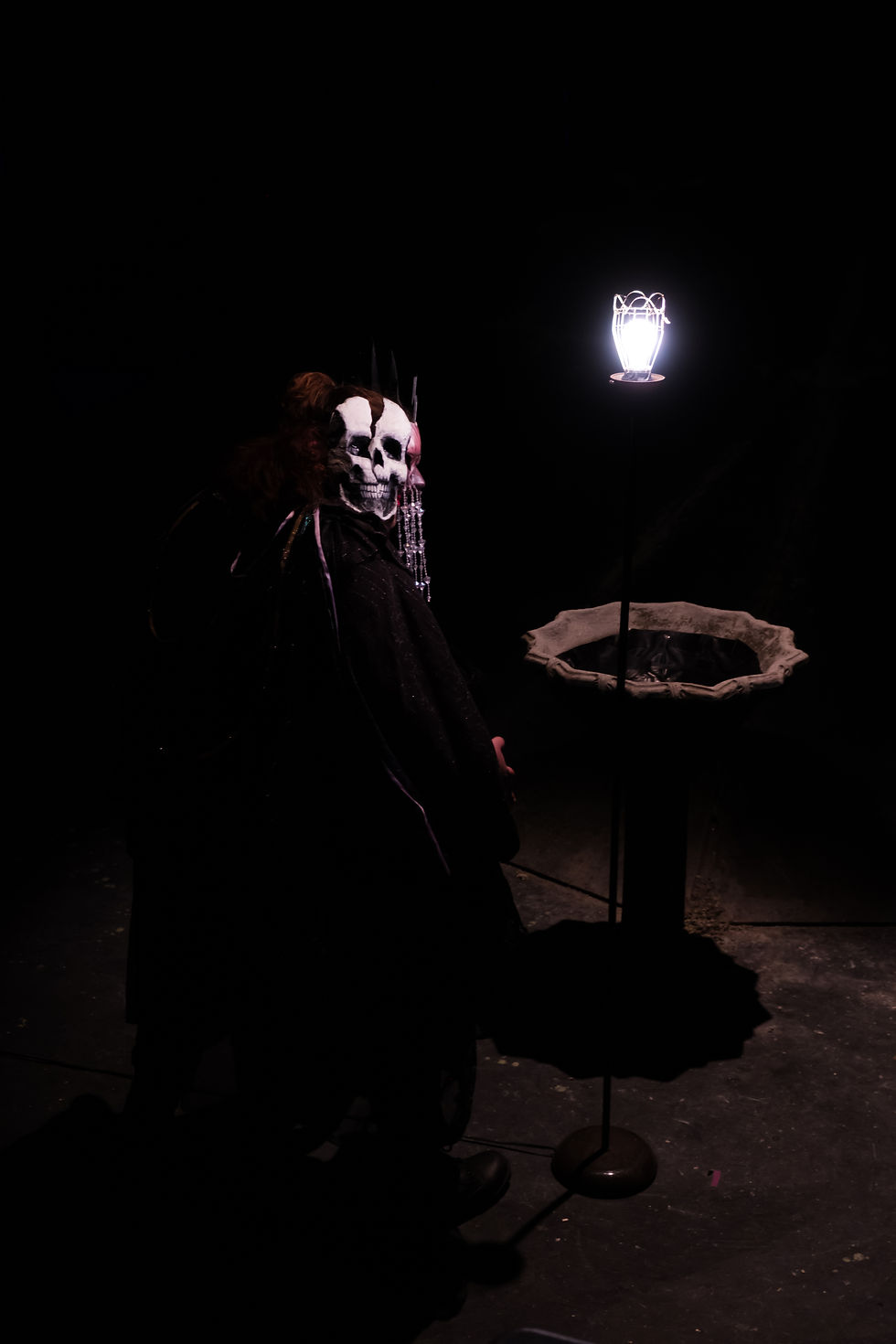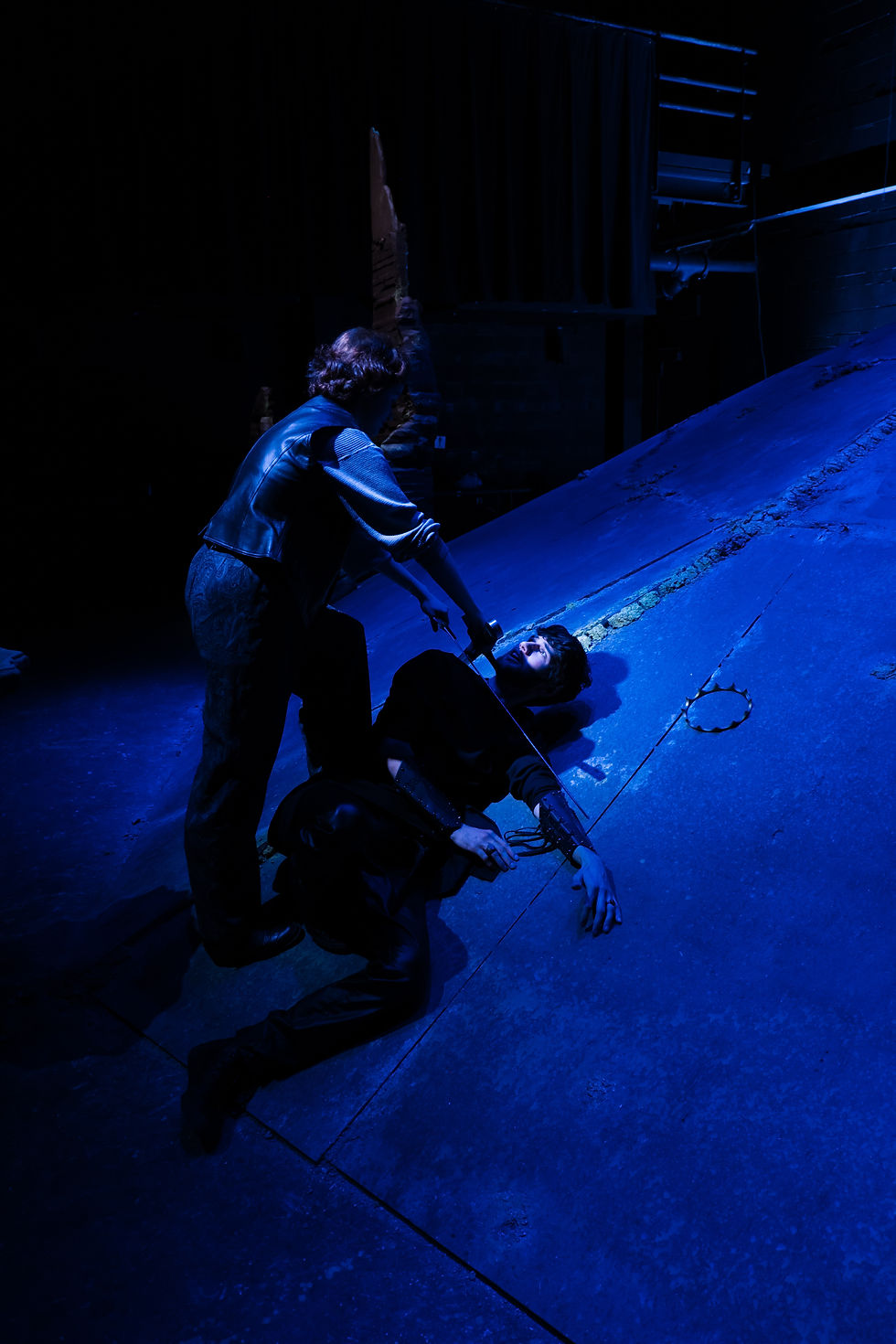Macbeth by William Shakespeare
Brevard College Theatre 2024

Photo: Emily Rich

Photo: Emily Rich


Photo: Emily Rich
In approaching this play with our students, I began to wonder: What caution was Shakespeare giving us with regards to ambition? Why are we so inclined to demonize a quality that is part of every human’s experience? Is it not true of most of us that we would like to have more? Be more? Ensure our security? Why do we attribute this quality as a death sentence for our eponymous king? Why do we pair this judgment with our enduring cultural misogyny to further dehumanize Lady Macbeth? It’s my belief that Shakespeare left many clues in his text as to how to walk a more nuanced line. Not because he was waiting for a classroom analysis to unlock it, but because that is where his stage directions lived.
In combing through the language, I was struck with what inevitability the Macbeths seem to move along the path to their well-known destiny. Shakespeare gives us clues in this path through the three witches, or the Weird (Wayward) Sisters. The language contains so many references to the natural world, that I started to see this play as a demonstration of just how powerful Nature is in contrast to the fleeting self-importance of Humankind. Again, we have mistakenly attributed a demonic or supernatural quality to our witches. We think of cackling hags casting spells over a cauldron. However, every element named in that most famous concoction is actually a colloquial name for an herb that would be readily available in Shakespeare’s England. Rather than supernatural, I began to view them as something Über natural. An avatar of Nature represented on stage in a storytelling technique similar to the Morality plays that Shakespeare would’ve had some familiarity with.
With a streamlined cast of 7 actors, we explored a highly physical, ensemble-driven form of storytelling to unlock the kinetic energy within the play. Using one actor with a three-faced mask for the witches, and putting multiple characters into most actors' tracks, the story comes alive with its timeless lessons: Nature will allow us to believe that we are the center of the narrative, but she also will provide plenty of opportunities for us to stop and listen and change our behavior. Knowing this, perhaps Shakespeare cautions us to temper our own desire for self-improvement with a need for harmony with one another, and with Nature. As we see a husband and wife push everything else aside, even one another, to find safety in the top of the pecking order, perhaps we can discover a different path forward that allows us to find the safety we crave within our community rather than in spite of it. When we dismantle capitalism’s lie of rugged individualism with Nature’s promise of balance, we may be able to hear the witches’ caution with more understanding.